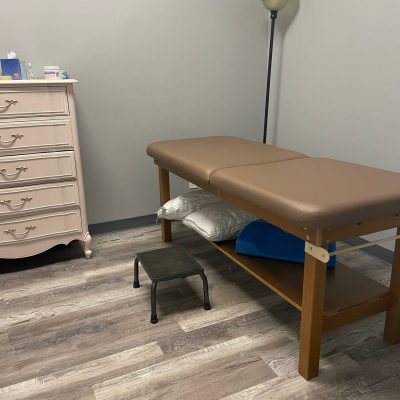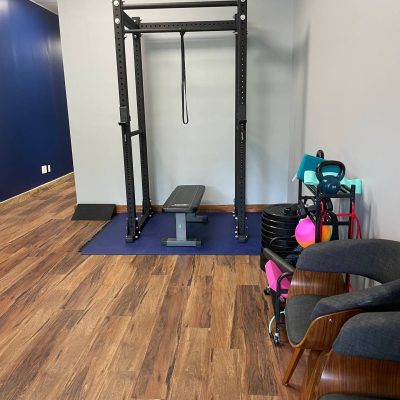Are you struggling with urinary incontinence, hindering your participation in activities you love? Perhaps you yearn to attend your child’s game, engage in yoga, or enjoy various social activities with friends, but the fear of embarrassment holds you back.
If you’re encountering any unusual symptoms related to your bladder, it’s crucial to pay heed and seek assistance promptly. Ignoring these signs may lead to unnecessary discomfort.
At Magic City Physical Therapy, we empathize with the impact that female bladder problems, such as urinary incontinence, can have on your quality of life. This understanding propels us to assist you in recognizing the signs and taking the initial steps toward improving your bladder health.
If you find yourself experiencing frequent leaks, you might be wondering if it’s a cause for serious concern. We understand your apprehensions, emphasizing the importance of identifying the potential causes of your urinary issues before jumping to conclusions.
Here are some signs of bladder problems in females:
- Frequent Urination:Constantly rushing to the restroom and urinating more often than usual may indicate underlying bladder issues. This can disrupt your daily activities and sleep patterns.
- Urgency: A sudden and overwhelming urge to urinate, even when your bladder isn’t full, could be a significant indicator of female bladder problems. If left unaddressed, this urgency may lead to accidental leakage.
- Stress Incontinence:Leakage during activities like coughing, laughing, sneezing, or exercising points to stress incontinence. This occurs when pelvic floor muscles weaken, compromising bladder control during such movements.
- Overflow Incontinence: Struggling to fully empty your bladder, coupled with frequent dribbling or a persistent feeling of incomplete voiding, may signify overflow incontinence.
- Nocturia: Waking up multiple times during the night to urinate, a condition known as nocturia, can be an indication of bladder problems in women. This disrupts your sleep and leaves you fatigued during the day.
Pelvic floor therapy stands out as the optimal initial treatment for bladder problems due to its targeted and non-invasive approach that addresses the root causes of many bladder-related issues. Here are several compelling reasons why pelvic floor therapy is considered the best first-line treatment for such concerns:
- Precision in Targeting Underlying Issues:Pelvic floor therapy is specifically designed to address the muscles, ligaments, and connective tissues that comprise the pelvic floor and nearby structures. Many bladder problems, including urinary incontinence and urgency, stem from weakened or dysfunctional pelvic floor muscles. By directly targeting these structures, pelvic floor therapy aims to improve muscle function, coordination, and overall pelvic floor health. However, sometimes distal structures can be contributing to bladder issues; Pelvic Floor Therapists look at the whole body to determine all factors that may be playing a role in your unwanted symptoms!
- Non-Invasive Nature: Unlike some medical interventions or surgical procedures, pelvic floor therapy is a non-invasive and conservative treatment option. It prioritizes rehabilitative exercises, manual techniques, and lifestyle modifications, minimizing the need for more aggressive measures in the early stages of treatment.
- Customized Treatment Plans: Pelvic floor therapists develop individualized treatment plans tailored to the specific needs and symptoms of each patient. These personalized plans take into account factors such as the type of bladder problem, severity of symptoms, and the patient’s overall health, ensuring a comprehensive and targeted approach to address the root causes.
- Promotion of Muscle Strength and Function: Pelvic floor therapy focuses on strengthening and optimizing the function of the pelvic floor and nearby muscles. This not only addresses existing bladder issues but also helps prevent future problems by enhancing the support and control mechanisms of the whole body.
- Education and Lifestyle Modification: Pelvic floor therapists educate patients about the factors contributing to their bladder problems and provide guidance on lifestyle modifications. This may include recommendations for dietary changes, fluid management, and proper toileting habits. Empowering patients with knowledge helps them actively participate in their treatment and adopt habits that support bladder health.
- Low Risk of Side Effects: Pelvic floor therapy generally has a low risk of side effects compared to some medical treatments or medications. This makes it a favorable option, especially for individuals who prefer conservative approaches before exploring more invasive interventions.
- Comprehensive Approach to Women’s Health: Pelvic floor therapy is integral to women’s health, addressing not only bladder problems but also other pelvic issues such as pelvic pain, sexual dysfunction, and postpartum concerns. This comprehensive, whole-body approach ensures a holistic focus on women’s well-being.
In conclusion, pelvic floor therapy emerges as the best first treatment for bladder problems due to its targeted, non-invasive, and individualized nature, offering patients a proactive and empowering approach to address and manage their bladder health.
Don’t let bladder problems in females dictate your life or hinder your confidence. At Magic City PT in Hoover, Alabama, we’re dedicated to helping women regain control of their bladder health. Contact us today for help getting control of your bladder health!







